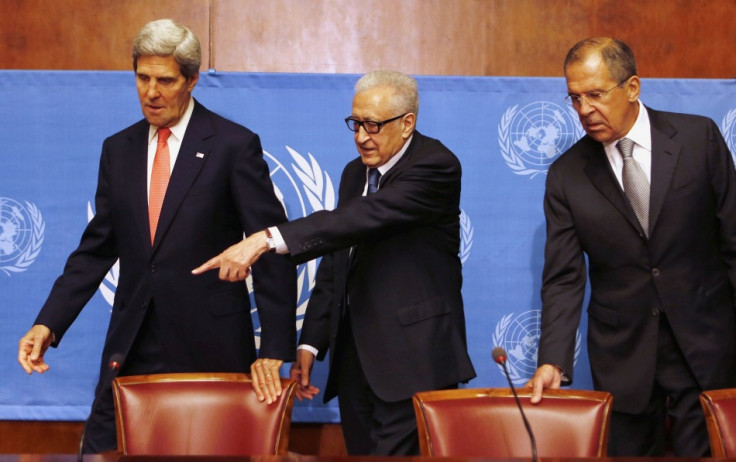US and Russia Hope for Breakthrough in Syria Talks

The US and Russia are hoping for a breakthrough in the ongoing talks between John Kerry and Sergei Lavrov in Geneva over Syria's chemical weapons.
An American official said the talks, which enter the third day, have reached a "pivotal point".
The talks between the US secretary of state and Russia's foreign minister centre on Moscow's initiative to have Syria's chemical weapons placed under international control.
Although officials admit that the talks involve tough negotiations amid a deepening crisis, they are hopeful of a positive outcome.
The US official, familiar with the matter, said the two sides are "coming to agreement" over the size of the Syrian regime's chemical weapons stockpile, according to Reuters.
Lavrov's spokesperson said: "It is a sign that we are going on, that we proceed with talking and negotiating. Now it is like a real negotiating process, they are working on some real substance."
Kerry too had earlier struck an optimistic note. He told a press conference: "We are committed to trying to work together, beginning with this initiative on the chemical weapons, in hopes that those efforts could pay off and bring peace and stability to a war-torn part of the world."
Despite the progress in the negotiations, the two sides face huge political challenges. Kerry will head to Israel over the weekend.
In the US, President Barack Obama insisted any outcome of the talks should be "verifiable and enforceable".
Although Obama administration officials are not optimistic that the UN Security Council will authorise the use of force against Syrian regime, Washington appears not to have ruled that option out.
"We are not going to prejudge the outcome of negotiations that are just beginning in New York. The US has been clear that for any effort to be credible, it must be verifiable and include consequences for noncompliance," said US State Department spokesperson Jen Psaki.
© Copyright IBTimes 2025. All rights reserved.





















